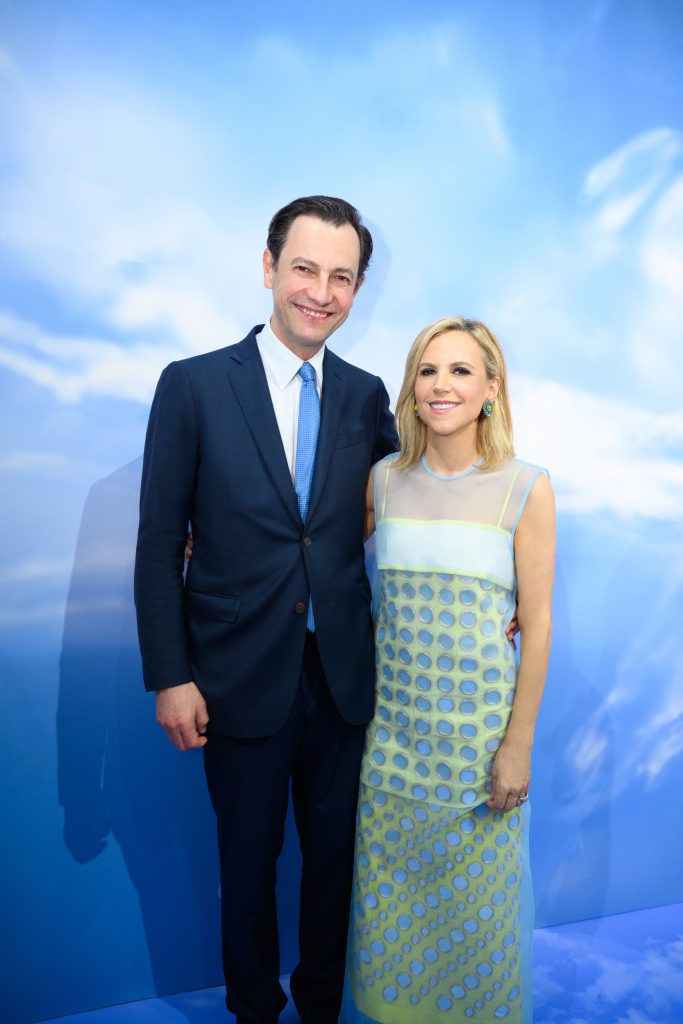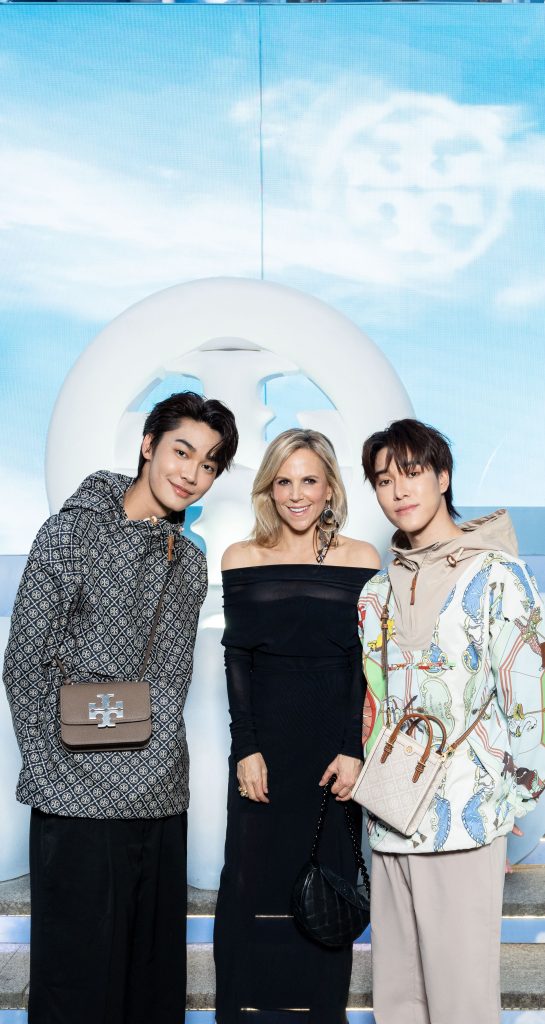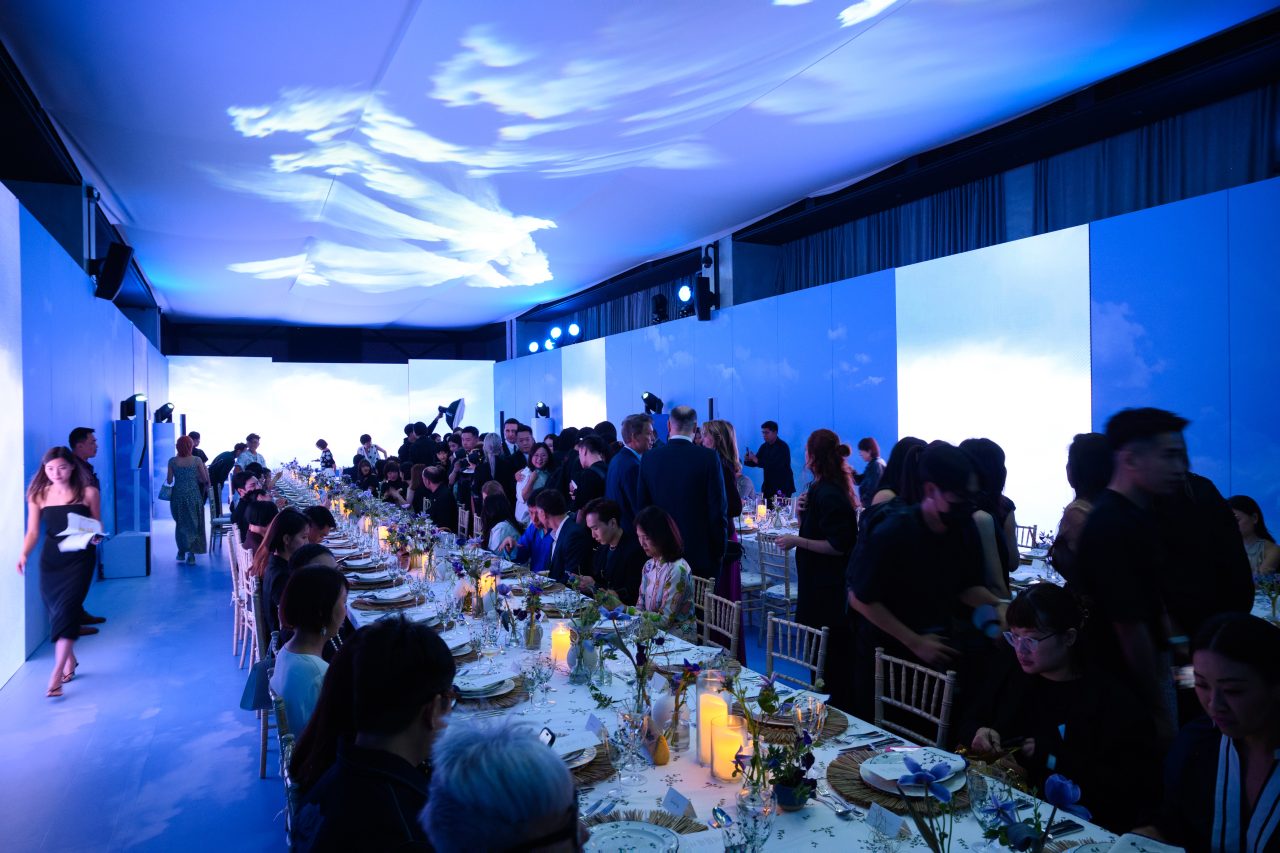
In Singapore to celebrate the launch of the Spring-Summer 2023 Collection and for the opening of the T Monogram Pop-Up at Wisma Atria, Tory Burch executive chairman and chief creative officer Tory Burch hosted a dinner and cocktail event attended by celebrities from Singapore and the Asia-Pacific region—such as Chinese actress Qin Lan and model Liu Wen, and Thai actors Dew and Nani—together with a tour of Mud Rock’s ceramic studio and a fireside chat with actress Oon Shu An at LASALLE College of the Arts.
In a talk that covered everything from the history of the brand’s founding, its purpose-led philosophy, to insight into the Tory Burch Foundation, Burch shared how her $2 billion business has grown since 2004 to more than 350 stores across the globe and helped support a foundation that empowers women and offers them access to entrepreneurship training and resources, such as low-interest loans, fellowship programmes, seminars on writing business plans, and funding advisory.
Here are six of the biggest takeaways from the talk with Tory Burch.

1. Creativity needs space to thrive
“When my husband (former chairman and CEO of LVMH Fashion Group, Pierre-Yves Roussel) came on board four years ago and it allowed me to happily give up the title CEO, people asked me if it was difficult, and it was probably the easiest thing I’ve ever done. With that, and unfortunately when COVID hit, it was a bit of a reinvention for me, because before I spent roughly 30 per cent of my time in the creative aspect of our business and the rest of the time went to operating it and being pulled in so many different directions. Over the last four years, having Pierre take the operations away has really allowed me to get back to the essence of what I thought my design philosophy would be and actually have time to think and execute it.”
Read More: The Tory Burch Pop-Up Will Take You To Cloud Nine
2. Opportunities can come out of crises
“I don’t think you often get the opportunity to say, Let’s look at how things are done and start again, and with all the difficulties and sadness of COVID, the positive aspect that I try to pull from it is that we had time to reassess and rethink, and we took that opportunity. Someone on our board used to say to me, Never waste a bad crisis, and we didn’t waste this one. Probably for three months straight we were working 18-hour days. It was so much about trying to figure out all the problems that COVID had brought, but at the same time, we were focused on creativity and innovation, and it really changed for me because before in the design process, I used to be inspired by my parents or by travel or by an art exhibit, but when COVID happened I had to really go within and the inspiration had to come from deep inside of me. So it started our journey of evolution even more.”

3. Have a perspective for your business
“People can have so many ideas, and I think part of the challenge is to be a good editor of what you believe and really have a point of view. If you are thinking of starting your own business, it’s so important to have a vision and your own point of view. And I was thinking about that: What do the last 14 years that we have been running this business mean to me, and what can I take from that? And I’ve learned on the job. I never went to design school or business school. I started this company after I had to give up a job that I loved with LVMH, I had three babies under the age of four and I realised—and a lot of women have to make this decision and hopefully one day they won’t have to—that I had to give up my career to be a stay-at-home mum. It was during that time that I became obsessed with this idea that doing good is good for business, and that was the overarching theme of my business plan.”

4. Anyone can teach you something you don’t know
“The smartest people are the people that know what they don’t know, and I think I’ve always been good at that, so I’ve always surrounded myself with an exceptional team. And even in the beginning, I would find people that I thought were experts and get their opinions and I would cold call people and try to make them my mentors. I’d be asking questions and also we’d have a dialogue and then they’d offer another meeting. and it wasn’t intentional, but I realised when I look back, that was what I was doing. And I think mentors are invaluable and mentors come from all places. One of my mentors was in the tech industry, so nothing to do with fashion directly.”
Read More: Tory Burch Deconstructs Fashion—Then Puts It Back Together Again
5. For a successful fashion business, creativity is key
“If you don’t have exceptional creativity, you won’t have a business, and I think at the end of the day, when I design, I don’t think about that balance, I think about creativity first and then you have people work with you to take the things from this incredible creativity that will be more commercial and then you find the balance. I think when you design and you’re thinking about what works commercially, it messes designers up and it’s not in my opinion the healthiest way, at least for me and our team, to think about the creative journey. I care deeply about things that sell or not sell, but at the end of the day, the products have to be so inspiring that people want to buy them.”

6. Know when to ignore naysayers
In 2004, when Burch launched her store, the business concept was uncommon among contemporary brands: direct to consumer, via e-commerce, with multiple product categories, and complemented by a homey, maximalist boutique at a time when minimalist stores were in style.
“It could have gone one of two ways: success or complete disaster. I don’t know where I got the instinct to believe in the things that I was doing. When people told me that no one would ever buy online, I did feel that maybe they’d be wrong, and that it was interesting to walk into an environment and feel welcomed and that also offered 10 different categories, so you knew exactly where you were. I didn’t know that it would be a success, but I had enough belief in the idea and tenacity to think that I could get it done. I remember when Bergdorf Goodman and Neiman Marcus came in, I had worked out of our apartment for the first two years, and I would say to them, This is going to happen, and they believed in me. So I think if you believe in yourself, others will believe in you too.

“There were many people that did not believe in me or the idea. And there were so many people that told me never ever to say ‘business’ and ‘purpose’ in the same sentence. They reacted as if it was the idea of charity work. There were so many people that told me that direct to consumer was not the way to go, and that wholesale was the way to go. They told me that launching with one category would be better and then you build from there. I could go on and on. They didn’t like the street we opened on, where there was not anything except for a Cuban restaurant. My mother and my father brought me into a room when they knew I was starting this company, and they said, ‘You’d better thicken your skin, because there’s going to be a lot of naysayers and you should also think of negativity as noise.’ They did raise me with that attitude. It almost made you want to do better because they believed in me and my brothers and were always building us up. I think that’s probably how I thought I could do things because they said, ‘If you work really hard you can do anything and achieve anything but be prepared to really work hard.’”
The Tory Burch T Monogram pop-up is located at Wisma Atria, and will run until 16 April 2023.
